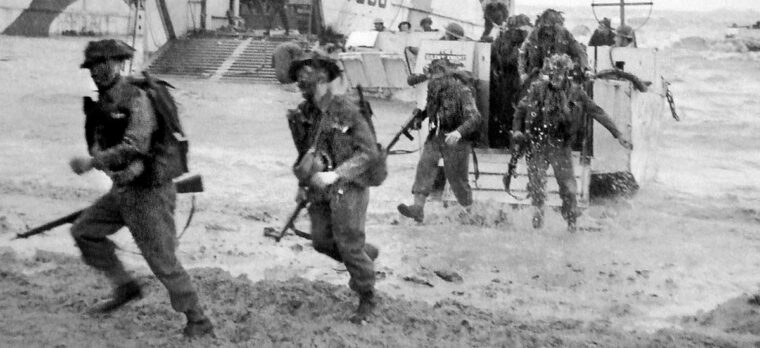
Sergeant Major Stan Hollis: The Victoria Cross on D-Day
By Michael D. HullA chill breeze cut through the early morning haze, and the storm-swollen sea was rough off the coast of northern France on Tuesday, June 6, 1944. Read more

A chill breeze cut through the early morning haze, and the storm-swollen sea was rough off the coast of northern France on Tuesday, June 6, 1944. Read more
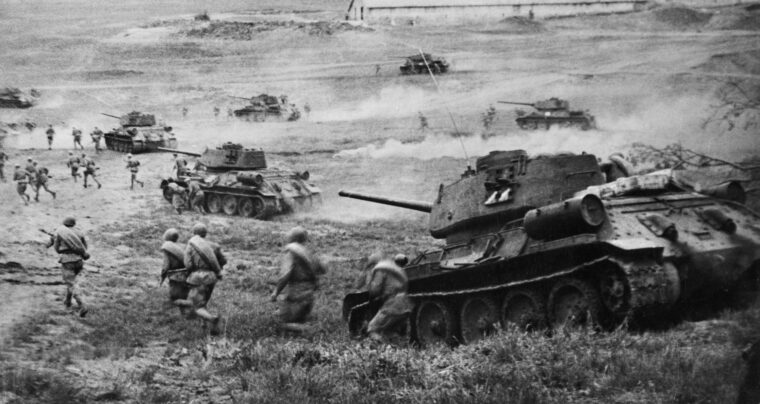
The city of Ternopil, located on the eastern bank of the Seret River, was founded in 1540 as a Polish military stronghold. Read more
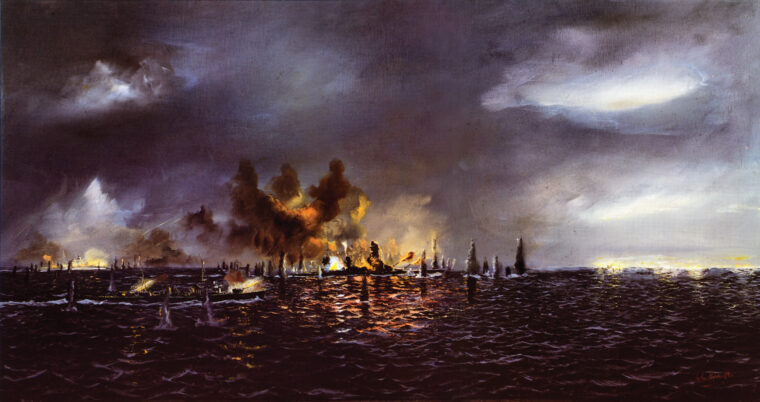
In the distance, they could see the jagged flashes of lightning, an incoming squall in the dark. Just before the rain arrived, so did St. Read more
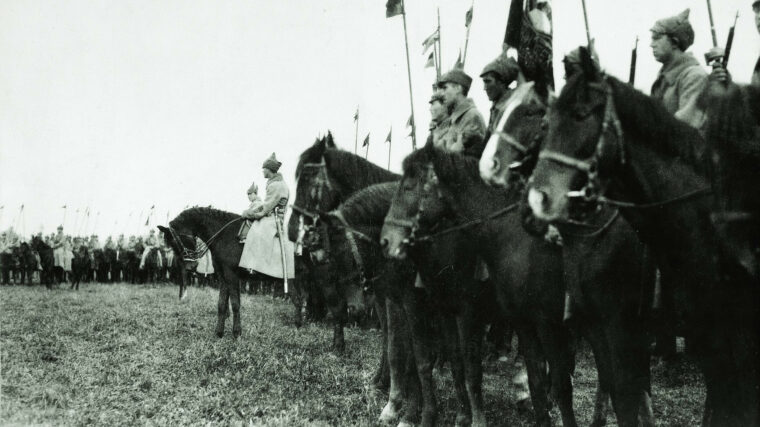
The Russo-Polish War of 1919-1920 was the most portentous event facing post-Versailles Europe. It was not just the continuation of a centuries-long contest between Russia and Poland to determine which would dominate eastern Europe, but a struggle involving a new ideology—communism—which the Bolshevik regime in Moscow had to spread throughout the Continent to survive. Read more
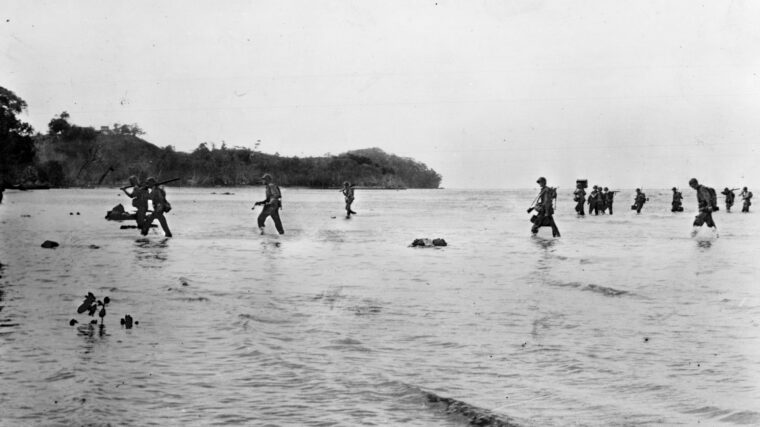
The strategic defeats suffered in the Battles of the Coral Sea and Midway checked Japan’s advance in the Pacific. Read more
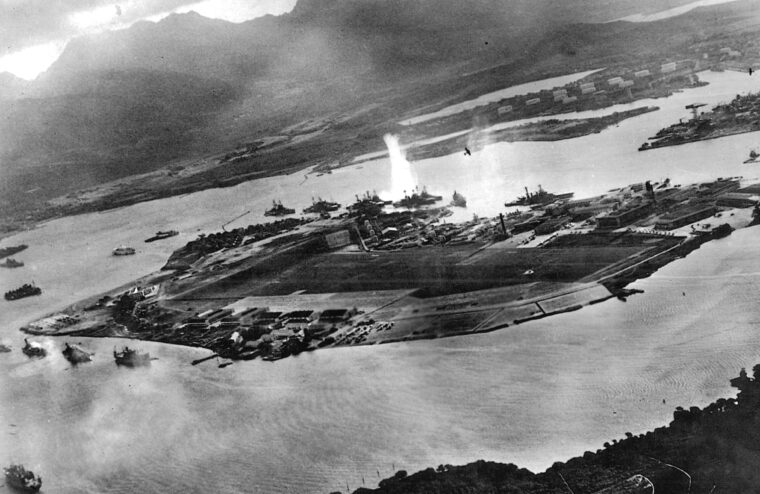
Gene Verge was born in Pasadena, California, in 1918. As a young man in 1941 he faced the probability of being drafted. Read more
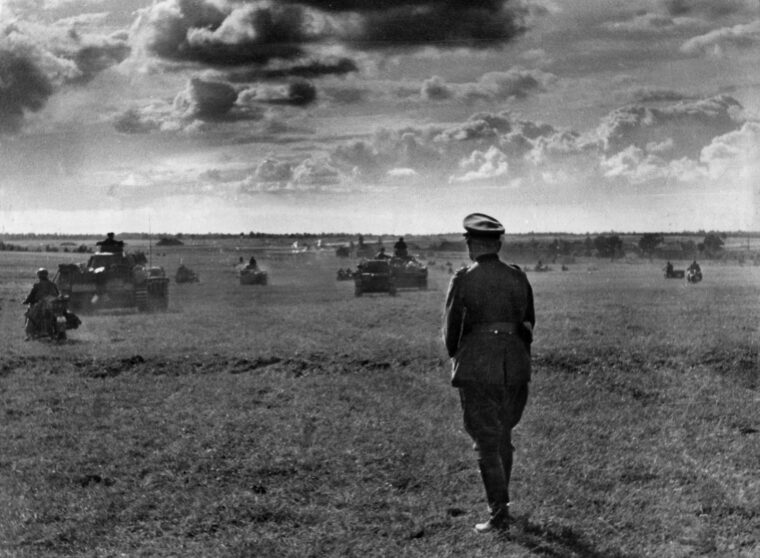
Hitler was enraged as he stalked his way around the room during the waning months of World War II. Read more
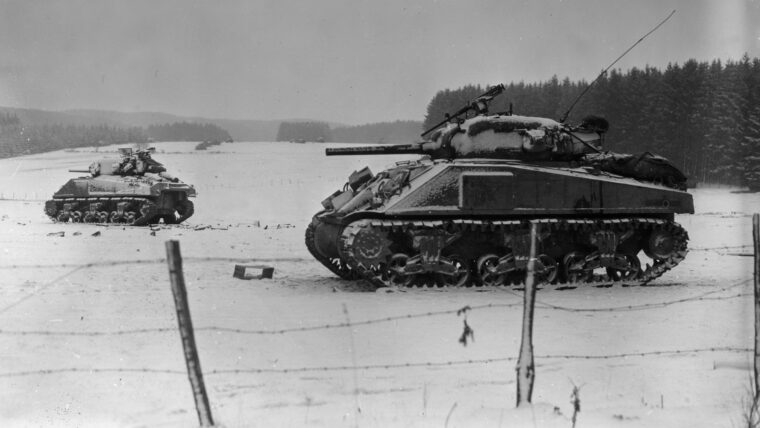
After four months and a 600-mile advance from the beaches of Normandy into Brittany and then through eastern France, the spearhead of Lt. Read more
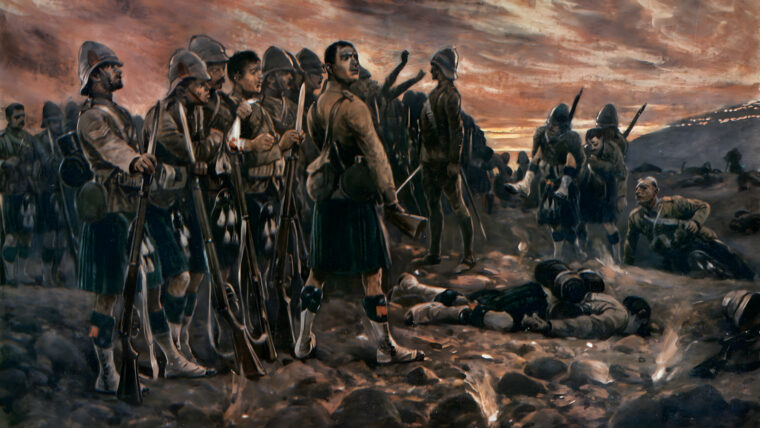
During the third week in November 1899, British forces under the overall command of General Sir Redvers Buller were marching northward across South Africa’s Orange Free State in a campaign to relieve the strategically vital railroad center of Kimberley. Read more
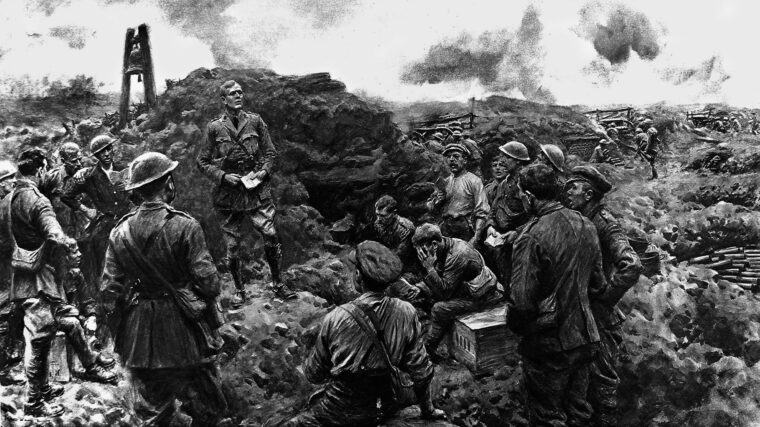
They carried no weapons, only holy books and rudimentary vestments, a crucifix or a Star of David and sometimes a little Communion kit. Read more
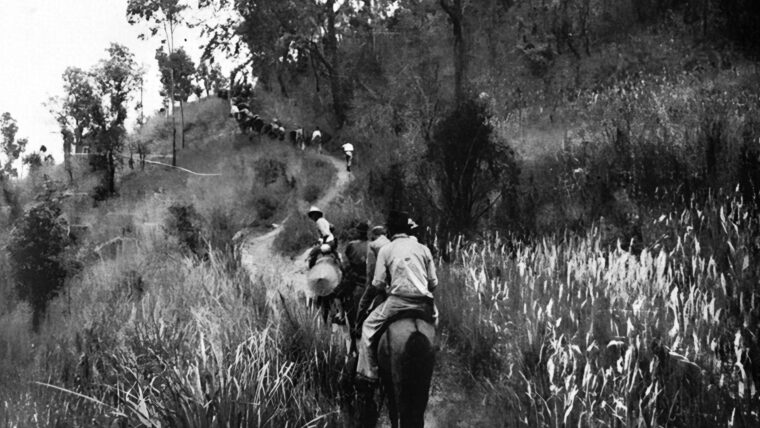
Thailand was perhaps the least known, though surely more scenic and exotic, covert battleground of World War II. Read more
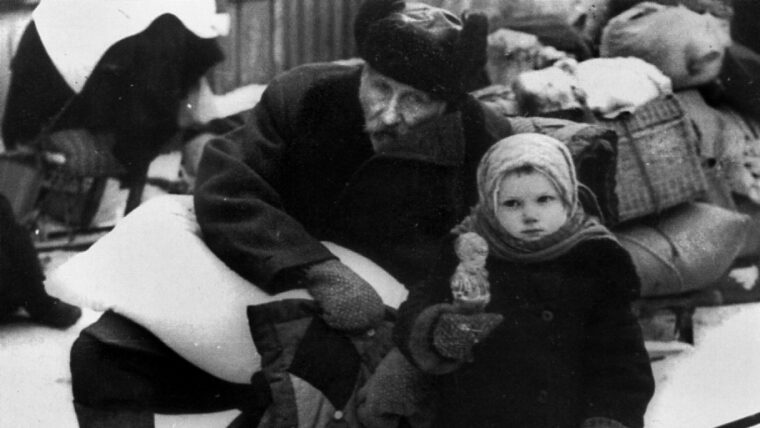
Georgina’s mother sat next to me at her dining room table. She and her husband were veterans of the Great Patriotic War, and back in 1996 we all sat about the table on Victory Day and talked about the siege. Read more
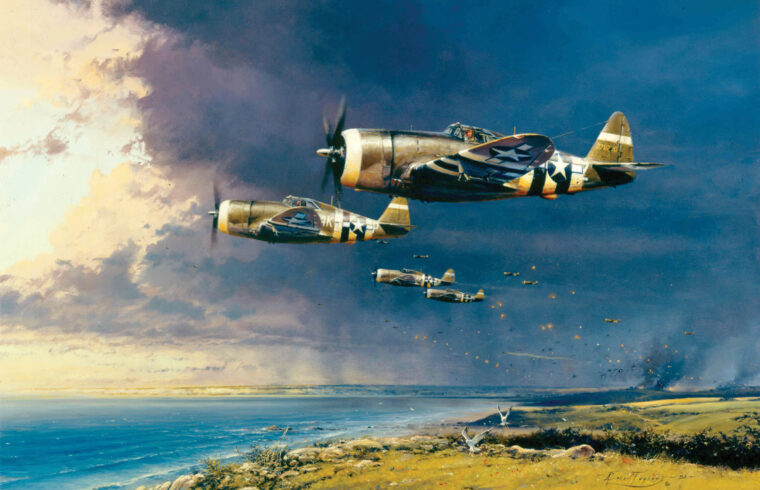
As the landing craft carrying the invading Allied ground forces of Operation Overlord motored toward the Normandy beaches on June 6, 1944, they were protected and supported by the largest aerial armada the world has ever seen. Read more
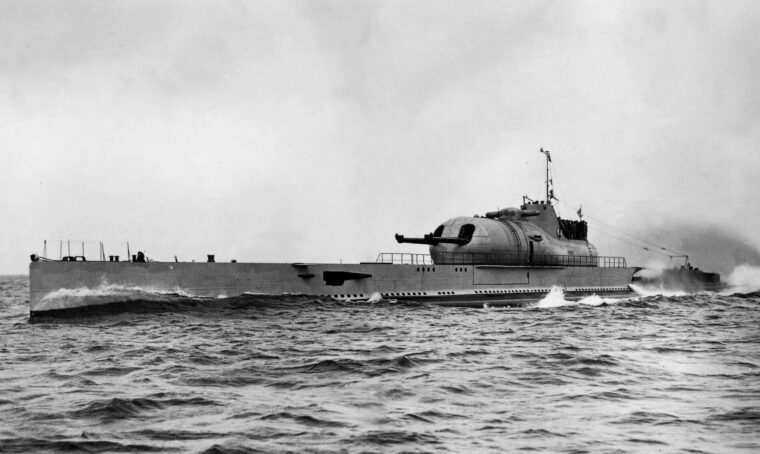
When built, the French Surcouf was the largest submarine in the world. She was named for Robert Surcouf, the famed French privateer who waged successful economic warfare against England during the Napoleonic era. Read more
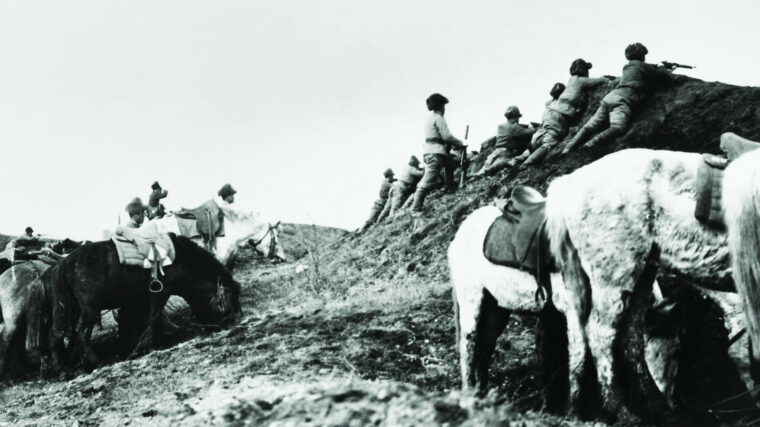
At 11:02 am on August 9, 1945, an American warplane dropped an atomic device nicknamed “Fat Man” onto the city of Nagasaki, Japan. Read more
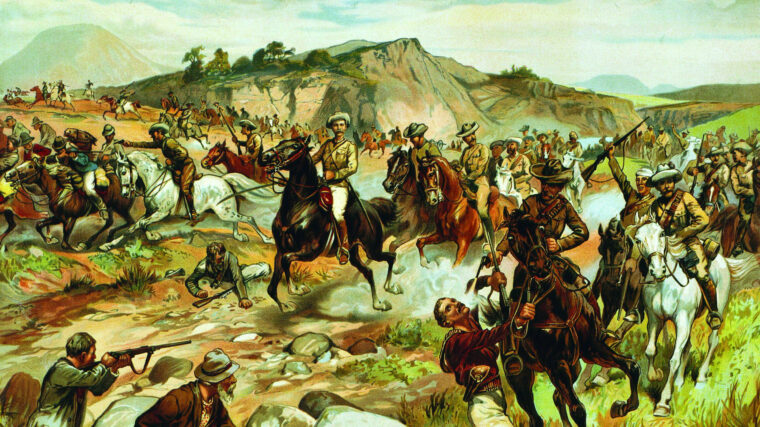
During the infamous Black Week of December 1899, the proud British Army suffered three consecutive bloody defeats in southern Africa. Read more
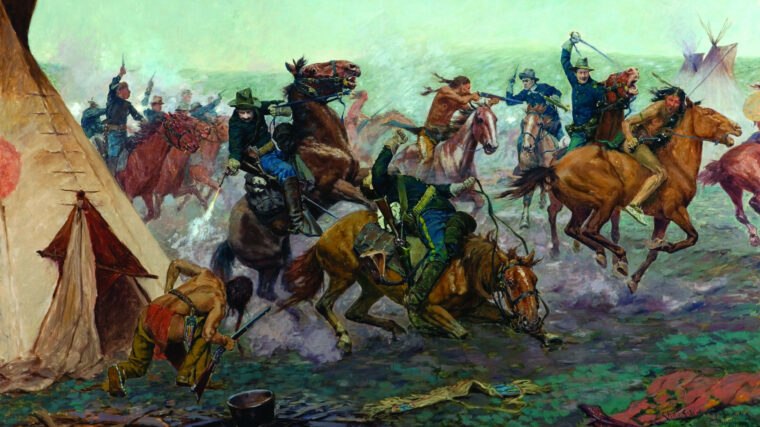
The conclusion of the Civil War saw the painfully reunited nation resume its westward surge. Complicating that surge was the Indian question: how best to remove the Native American peoples from the paths of white expansion. Read more
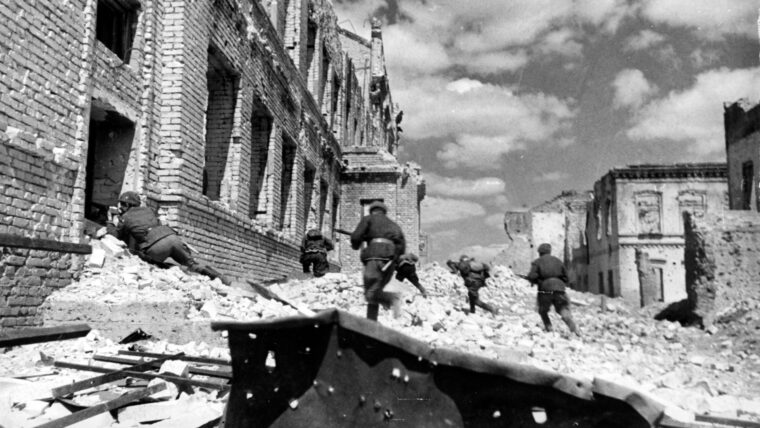
After Adolf Hitler’s audacious invasion of Russia finally ground to a halt in December 1941 on the forested outskirts of Moscow, the exhausted German Army stabilized its winter front in a line running roughly from Leningrad in the north to Rostov in the south. Read more
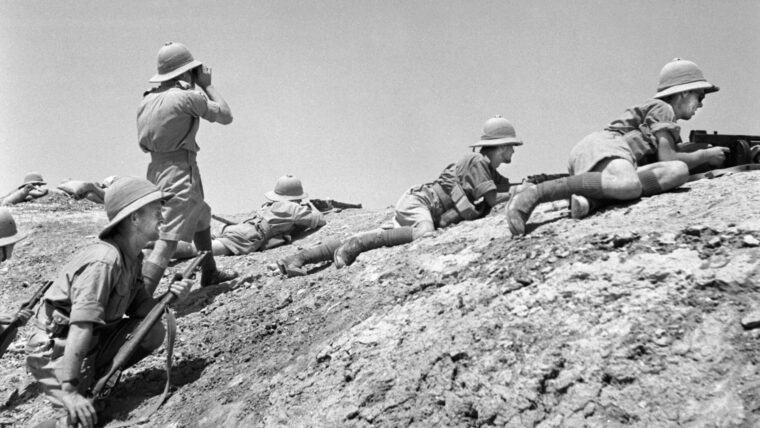
Many students of World War II history know General Sir Claude Auchinleck as the Commander-in-Chief Middle East, who, after taking over for General Sir Archibald Wavell in late June 1941, oversaw the fluctuating fate of Britain’s Eighth Army while combating German General Erwin Rommel’s Afrika Korps during Operations Crusader and Gazala. Read more
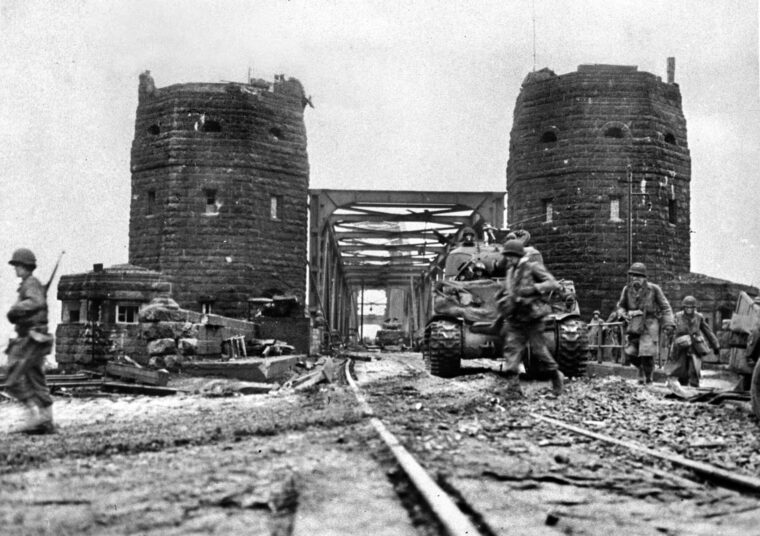
As Allied troops advanced along a broad front toward Nazi Germany in the winter of 1945, the United States Army was eager to capture an intact bridge over the Rhine River to allow its troops and heavy equipment to advance rapidly into Germany. Read more